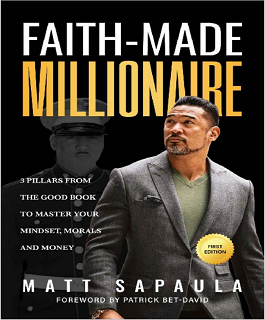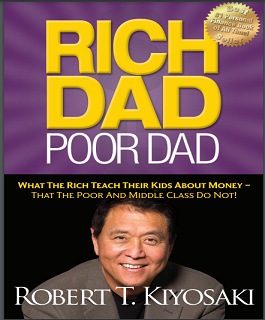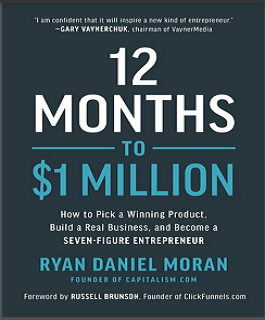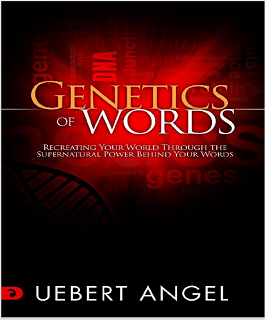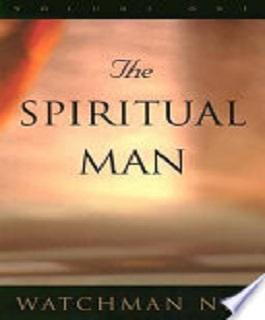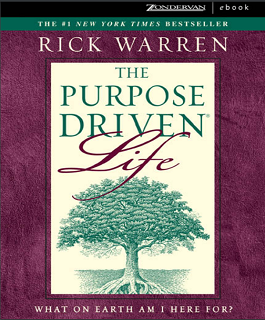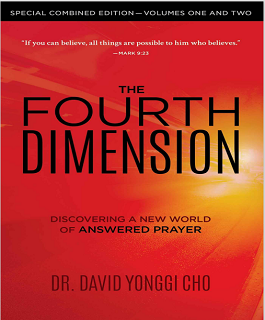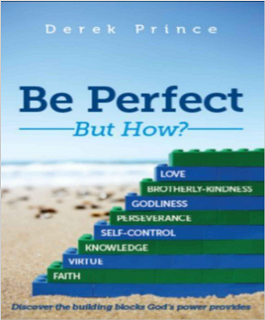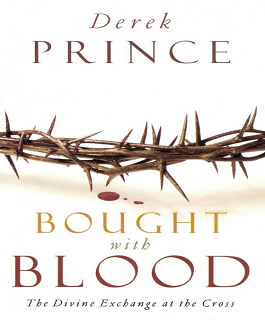Faith-Made Millionaire
To read a book, Please sign into your account.
loginPILLAR I
FAITH & FAMILY
“The greatest legacy one can pass on to one’s children, and
grandchildren is not money or other material things accumulated in
one’s life, but rather a legacy of character and faith.”
— Billy Graham
E
1
Misconceptions of Faith
“Faith is to believe what you do not see.
The reward of faith is to see what you believe.”
— Saint Augustine
very human being lives by faith. Even someone who doesn’t believe
in a God or a Higher Power believes in science. They put their trust in
hypotheses advanced by non-religious scientists with regard to the
origin of the universe and questions of ultimate meaning. Since these are
things they cannot scientifically verify, they essentially learned from others
they consider authoritative.
Hebrews, chapter eleven in the Bible has often been called “The Faith
Chapter.” It describes many of God’s greatest servants and how their faith
enabled them to perform great acts and miracles and endure severe trials.
This chapter says, “Now faith is the substance of things hoped for, the
evidence of things not seen” (Hebrews 11:1, emphasis added).
Faith involves evidence of things not seen, but how can evidence be related
to something unseen since evidence usually involves tangible things? In a
courtroom, evidence involves facts—and anything that isn’t seen—is
hearsay.
Faith involves assurance of things we hope for, but if something is hoped
for, that means it hasn’t been received yet. Therefore, where faith is
involved, there is an assurance that it will be received! Authentic faith, in
any of God’s promises, is actually the evidence.
If God promises to do something, it is impossible for Him to lie (Hebrews
6:18). Faith, by its very nature, produces action. We are wired to feel and
act in accordance with what we believe to be true. We cannot help it. Faith
is knowing what needs to be done without feeling prepared to make a
decision. You don’t have the skills or know what the end result will be, but
you know there’s a Higher Power that is seeing things through.
For years, I misunderstood faith. I used my faith in God as armor or
insurance policy because I was either scared or looking for another layer of
protection like I did in the military. I wanted eternal security just in case
something happened to me.
I convinced myself that I was pleasing God, while in fact, God wanted me
to use faith in my everyday life, not when I was about to cross into eternity.
If beliefs about God and faith abound, then misguided misconceptions
about faith in Him also exist. I won’t attempt to dispel every misconception
about faith because that would take too long. I will share, however, some of
the most common false beliefs we can hold regarding faith.
Misconception: God isn’t concerned about money.
Truth: God cares about you and your money.
Some people believe God cares more about their heart and spirit versus
what they do with their money. He actually cares about both. Half of Jesus’
parables instruct people on how to handle earthly treasures. One out of ten
verses in the four gospels deals with money and stewardship. Are you
convinced yet? God taught more about stewardship than about Heaven and
Hell combined!
Why in the world would God spend so much time on this topic if it wasn’t
necessary? Money is a training ground for God to develop (and for us to
discover) our trustworthiness. “If therefore you have not been faithful in the
use of unrighteous mammon, who will entrust the true riches to you?”
(Luke 16:11).
Billy Graham once said, “You tell me what you think about money, and I
will tell you what you think about God.” If you look at your checkbook or
financial records, you will see where your heart is. Money reveals the
condition of our hearts, and how we deal with it shows how much we give
over to our Lord versus how much we hold back.

